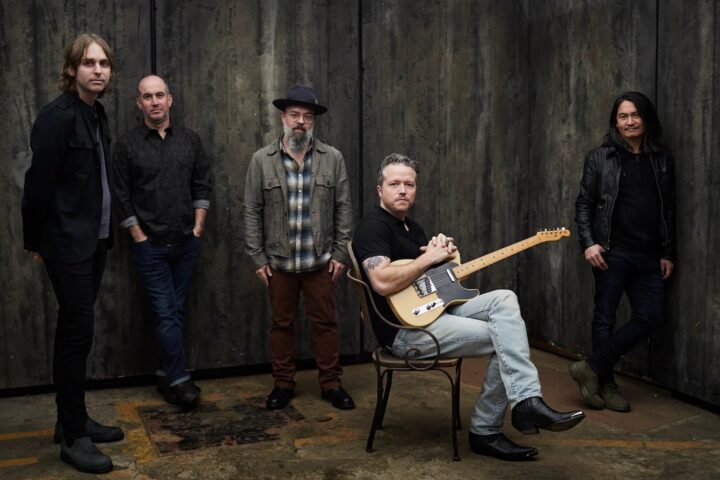A multifaceted and occasionally unwieldy manifesto for disaffected lovers, Christine and the Queens’s Paranoïa, Angels, True Love is the culmination of the increasingly ambitious approach to pop that the French singer displayed on past releases like 2018’s Chris. On the first track, Chris makes his worldview known: “From where I stand, everything is glorious.” What follows is a collection of wiry, introspective songs that break from pop conventions while asserting the life-affirming power of love.
The track that perhaps best encapsulates Paranoïa, Angels, True Love’s conceptual ethos is “Track 10,” in which Chris, desperate for human contact, begs his lover to take him dancing. Marking the end of the album’s cavernous and tumultuous first movement, the song flows along to the artist’s stream-of-conscious lyrics, accompanied by a destabilizing drumbeat and gothic guitars while he cycles between howls, gritty growls, and falsetto.
Like “Track 10,” much of the rest of the album is preoccupied with connection. “Full of Life” samples Johann Pachelbel’s “Canon in D Major,” the quintessential wedding song, to interrogate whether a casual hookup can offer something deeper: “Take my hand and forget that I’m just another woman/Even though you see me, you’ll never let me be your boyfriend.”
Later, the trip-hop-infused “Tears Can Be Soft” endorses the therapeutic value of crying, paralleling the physical expressions of grief and love with a sample of Marvin Gaye’s sensual “Feel My Love.” The following track, “Marvin Descending,” serves as an even more direct tribute to the soul singer, with Chris meditating on soul ties and striving to draw closer to his lover.
Paranoïa, Angels, True Love offers a glut of similar songs about yearning, especially in its middle section. “I Met an Angel” opens with a Madonna reference—“Open your heart, my love/Don’t let it die”—before the Queen of Pop herself makes one of three appearances on the album to deliver a spoken-word bridge: “Do you suffer from loneliness?” she asks, already knowing the answer.
In response, Chris looks for love wherever he can find it, even in nature. “True Love” counterbalances the prior track’s gothic rock instrumentation and expansive structure with a more upbeat R&B sound, electronic blips, and a persistent heartbeat. “Angel of light, take me higher,” Chris sings, begging to replace the memory of the loss of his mother through romance.
For all of the AOR vigor and continued headiness of its final triptych, the album also exposes an overall lack of restraint. By the time the poppy “To Be Honest” rolls around with a wistfulness worthy of closing credits, Chris’s characterization of himself as “feeling kind of loveless yet always ready to try” has been more than well-established. Despite its beauty and relative brevity, the song’s place near the end of the 20-track album almost renders it redundant.
But Paranoïa, Angels, True Love’s apex, “Lick the Light Out,” deploys a mix of spoken word and cinematic rock to create fireworks as Chris declares, “I’m an angel in power/See me, hear me, feel me.” It’s rousing not only because of its explosive clatter of drums and electronic guitars, but also because it’s the payoff to a long period of self-examination that we’ve experienced alongside him. Chris leaves us by affirming that his mourning and desire aren’t simply burdens, but manifestations of his greatest strength: love.
Since 2001, we've brought you uncompromising, candid takes on the world of film, music, television, video games, theater, and more. Independently owned and operated publications like Slant have been hit hard in recent years, but we’re committed to keeping our content free and accessible—meaning no paywalls or fees.
If you like what we do, please consider subscribing to our Patreon or making a donation.



